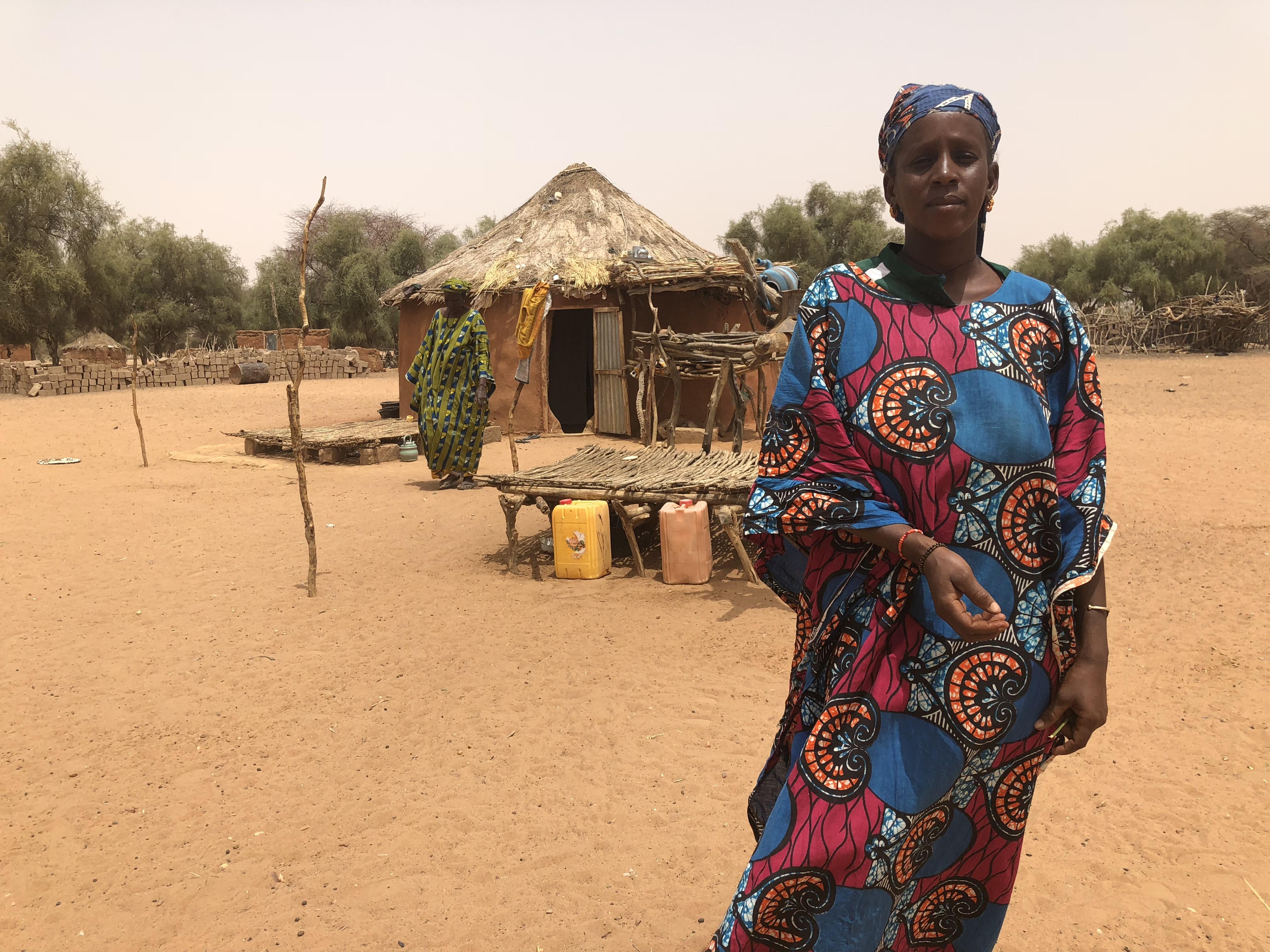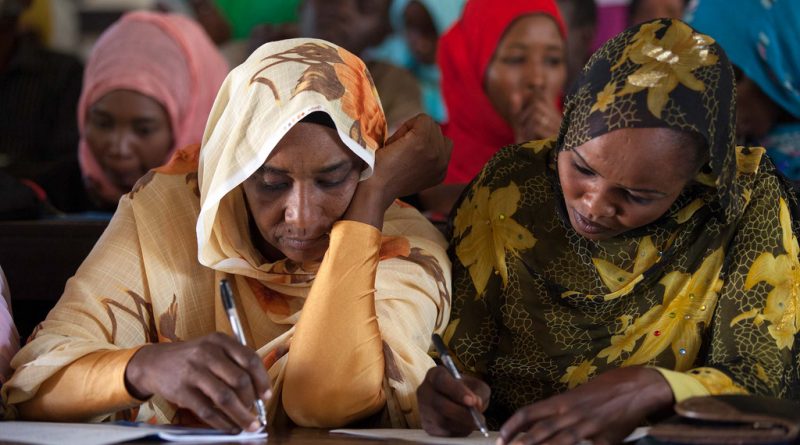As Zimbabwe’s 40th Independence anniversary draws close, the need arises to reflect on milestones so far achieved on women empowerment through Government’s efforts since 1980.
Since time immemorial, women have managed to keep their heads above the rising tornadoes of their existence by defying societal restrictions that allow men, as human deities, to be in control of wealth, and limit them to gendered roles.
They have made it possible for their feelings to be discernible, even to a society that seemed to be impenetrable as a product of their realisation that a story does not die because it is not told, but dies if it is told to deaf ears.

As mothers, they have a way of appealing to the heart; the heart listens. Women are able to circumvent their vulnerability through deft navigation of spaces either in the rural locale or urban setting.
Through their agency, they can become their own masters (Ndhlovu, 2002), and remodel intra-family relationships from economic leverage that gives them a voice in decision-making.
Empowering women economically works in favour of the family unit because they are considered more thrift than men.
African women have always had an affinity with the land which made it possible for them to provide for their families. As oracles, they understood the spiritual connection between humanity and the land, which they celebrated through the change of seasons.
There is a need, therefore, for a shift in policy parameters and mindsets, where empowerment goes beyond allocation of agrarian spaces to also open avenues in other sectors of the economy for women to thrive.
One of the ministries that have set the ball rolling in terms of citizen empowerment is that of Women Affairs, Community, Small and Medium Enterprises Development.
The ministry’s achievements and its role in women empowerment, community awareness and heightening informal sector contribution in both self-sustenance and the broader national economic framework cannot be overemphasised. It is a story whose time, indeed, cannot be stopped for a well-intentioned trail is indelible.
At the helm of the ministry is Dr Sithembiso Nyoni who is deputised by Honourable Jennifer Mhlanga with Mr Melusi Matshiya as the Permanent Secretary.
Mandate
The obligation of the Ministry of Women Affairs, Community, Small and Medium Enterprises Development is to create a conducive and enabling environment that promotes the development and growth of Micro, small and medium enterprises (MSMEs) and cooperatives.
Such a favourable milieu can only come to fruition through promotion of vibrant micro, small and medium enterprises and cooperatives where the common good is the ultimate variable.
The ministry’s vision, therefore, takes cognisance of that fact, hence, the desire to be the “nerve” in the promotion of such enterprises. In such an environment, women should play a leading role and should not be seen to be left behind or side-lined as has traditionally been the case, especially in colonial Rhodesia.
Functions
The ministry’s roles among others are formulating and implementing policies that support the growth of MSMEs and cooperatives; develop legal and regulatory frameworks; promote, coordinate and monitor innovative financing schemes; provide skills and management that support the development of small businesses and cooperatives. The ministry also plays an obligatory role in the administration of the Micro, Small and Medium Enterprises Development Fund to ascertain that deserving MSMEs and cooperatives identified through a data bank benefit.
MSMEs are accorded linkages with large enterprises, sector ministries and markets through the Ministry of Women Affairs, Community, Small and Medium Enterprises Development’s facilitation.
Background
Repressive colonial governments did not give black people a chance to venture into manufacturing or enterprises deemed to be technical.
They were supposed to be sole traders; running grinding mills, grocery shops and bus companies without government support.
They were closed out of the colonial laager that provided loans, technical support and marketing opportunities to whites, which made it difficult for them to run successful businesses. Those who made it in business had to rely on their own ingenuity.
The colonial agenda was to create perpetual labourers out of black people, who had to eke out livelihoods on the periphery of existence with each day replicating the other in its expression of doom and hopelessness.
Development of talent and skills was predominantly a preserve for white Rhodesians. Whites also enjoyed support in the running of their farms, industries and other businesses through plundering of African resources in connivance with settler governments. No matter how small their ventures started, white Rhodesians were assured of business growth.
On the part of women, society seemed to conspire with the prevailing repressive colonial legislation to keep women down. Most women could not go beyond the kitchen as nannies, maids and/or housewives.
The colonial system debarred women from living in urban areas where a hostel scheme was put in place to provide accommodation to black labourers who oiled the capitalist machinery with their sweat and blood. As a result, the highest level women could go was to become teachers and nurses, with business opportunities for them remaining a receding dream.
Thus, independence in April 1980 became the reality black people, particularly women saw as that glimmer at the end of the pipeline of struggle.
The Ministry of Women Affairs, Community, Small and Medium Enterprises Development was established in 2005, although the small and medium businesses component was not included then.
The quest was to open up more avenues for women empowerment outside or in addition to agrarian ones. Realising the broader role that women play in societal cohesion, the ministry set to spearhead their empowerment through advocating gender equality and equity.
In the African experience it is rather folly to downplay the role that women have always played in upholding societal values as well as moulding the family unit, which is why the adage “behind every successful man is a woman” holds water. It is in that light that women should be main-streamed into the larger financial rivulet that gives them a voice in decision making at familial, communal and national levels.
Cooperatives, which the ministry pivots group empowerment on, go a long way in community cohesion as each member is inspired through collective effort leading to achievement of the common good.
Since Independence in 1980, the Government of Zimbabwe has supported cooperative development in more than one way by putting in place enabling legislation, providing long-term basis for cooperative development through enacting comprehensive policies. Such efforts have seen both men and women getting support to run cooperative ventures in agriculture, fishing, manufacturing, transport, catering, mining, savings and credit enterprises as a way of sustaining their livelihoods.
Housing cooperatives were also established with the view to provide shelter to citizens.
Through Government support, Kugarika Kushinga, the first housing cooperative was launched in 1989.
Presenting a Ministerial statement in the National Assembly on July 21, 2016 on the state of cooperatives in Zimbabwe the then Small and Medium Enterprises and Cooperative Development Minister Sithembiso Nyoni pointed out that housing cooperatives are the largest sector, contributing 83 percent of all registered cooperatives in the country.
Between 2010 and 2015, she revealed, housing cooperatives constructed 99 840 houses for members of which 46 267 were at various stages of completion.
In Harare alone seven housing cooperatives got title deeds by 2016. These are Mupedzanhamo in Glen Norah with 800 members, Three Stars in Glen View with 40 members, Kambuzuma in Kambuzuma with 101 members, Mufakose in Budiriro 1 with 70 members, Sunshine in Crowborough with 71 members, Rutendo in Budiriro with 43 members and New Generation in Dzivarasekwa with 15 members.
According to the International Cooperative Alliance Report of 2015, Zimbabwe, with over 4 000 registered housing cooperatives and plus or minus half a million members countrywide, is ranked first in cooperative development in Africa.
There are 127 fishing cooperatives in the country which are sustaining many families and contributing to the national food basket.
Success stories have been recorded in the manufacturing sector as well through cooperatives and small-medium enterprises support. Through technical, financial and marketing support from the Ministry of Women Affairs, Community, Small and Medium Enterprises Development, MSMEs and cooperatives can hold sway in the cut-throat business environment.
As of December 2013, cooperatives at Siyaso in Mbare made estimated incomes of US$2, 384 million. These cooperatives are Cheziya (welding and furniture), Tin Smith (metal containers), Gumtree (carpentry and welding), Roadside (three-legged pots, buckles, and coffin handles), Carpenters (beds, wardrobes), kitchen units and dressing tables), Simukai Tailoring (uniforms and worksuits), Tisunungureiwo (plastic recycling for buckets and cups), Kuzvitonga Leather Works (shoes and belts), Best Multi-purpose (grinding mills and school furniture).
In her 2016 statement Honourable Nyoni pointed out that there are 57 arts and craft cooperatives registered since 2009 spread countrywide which are involved in stone and wood carving, baskets and tie and dye.
She added that the ministry has registered 19 transport cooperatives in Mashonaland West, Bulawayo, Harare and Manicaland which run taxis, buses, trucks and kombis.
These are Rixi, with a fleet of 20 as of 2016, Tinzweiwo Buses and Liza Trans which plies Harare- Gaborone and Francistown routes, and Tshova Mubaiwa Transport based in Bulawayo.
The ministry has registered 194 agricultural cooperatives since 2009. Cooperative opportunities have been created in piggery, cattle ranching and fattening, tobacco farming, goats and chicken rearing, marketing and supply of agricultural produce.
In the agriculture category, Hurungwe Cooperative Union has been the most impressive as it managed to deliver 534 791 tonnes of maize to the Grain Marketing Board (GMB) in 2013 alone.
Since 2009, 254 Savings and Credit cooperatives have been registered and in minning there are 92 cooperatives registered under the ministry.
Between 2017 and 2019, the Small and Medium Enterprises Development Corporation (SMEDCO) which falls under the ambit of the ministry has availed about $15 million to boost the growth of small businesses.
In September 2019, the ministry received a donation of machinery worth US$5 million from India through Indian Ambassador to Zimbabwe Mr Rungsung Masakui for incubation projects in the small and medium enterprises (MSMEs) sector.
The equipment was envisioned to upgrade 16 technology and common facility centres nationwide, and benefit 3 000 MSMEs annually.
In another milestone, the ministry partnered the United Nations, Finance and Economic Development Ministry and the Reserve Bank of Zimbabwe (RBZ) to open the Zimbabwe Women’s Microfinance Bank (ZWMB) with Dr Mandas Marikanda as the chief executive officer. The bank was officially launched by President Mnangagwa on June 25, 2018.
With research revealing that only 27 percent of women have access to formal banking products and accounting only for 10 percent of total bank loans, a microfinance bank like ZWMB with the fairer sex at heart can go a long way in empowering women.

